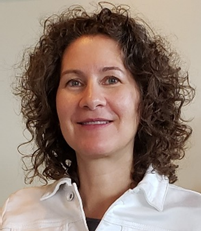Posted • Last updated
Closed
Open to Northern Region, Patient partners in Fort St. John, BC and the surrounding area
Last updated
In April 2016, a provincial state of emergency was declared in response to the increasing number of opioid-related overdoses and deaths. If you or a loved one has experience with substance use and would like to be involved in creating solutions for Fort St. John, this opportunity may be for you.
Open to: Patient partners in Fort St. John, BC and the surrounding area
Lead Organization or Department
Northern Health — Planning, Quality and Information MeasurementAim
The goal of this engagement is to create local strategies to address overdose-related harm and deaths in Fort St. John. Through engaging with individuals and loved ones who have been affected by overdose and or substance use, the Community Action Team is hoping to better understand the unique complexities of this epidemic to improve care and support in the community.Level of Engagement
This opportunity is at the level of involve on the spectrum of engagement. The promise to you is that the health care partner will involve patients in planning and design phases to ensure ideas or concerns are considered and reflected in alternatives and recommendations.Eligibility
- Open to volunteers from Fort St. John, BC and the surrounding area
- Patient partners should have lived experience with substance abuse as a family member or direct user (not restricted to the use of opioids)
- Comfort sharing your experiences with a diverse range of health care professionals and other stakeholders. This may include being at a place where sharing your experiences will not cause additional harm to you or your family.
Logistics
- 4 vacancies
- Meetings will be held every 2 months for 3 hours each time, beginning on July 27 2018
- Meetings will be occur in-person in Fort St. John, BC (Fort St. John Hospital)
- This opportunity will last up to one year.
- Supports such as counselling and safe use areas will be provided as required by the Health Care Partner.
Reimbursement
Mileage, parking and meals (if meetings occur over meeting times) will be provided/reimbursed as required according to Northern Health policies. Additioanl expenses may be addressed on an as-needed basis.Background
In April 2016, a provincial State of Emergency was declared in response to the increasing number of opioid-related overdoses and deaths. Since then, communities across the province have mobilized staff and resources to create local strategies to address this crisis. In February 2018, Fort St. John was identified as one of eighteen communities across the province to establish a Community Action Team to address overdoses. The Community Action Teams — made up of those who have lived experience with substance use, municipal staff, service providers, emergency responders, physicians, and First Nations representatives — will expand harm reduction strategies, increase availability of Naloxone treatments in the community, address potentially tainted drug supplies, and identify those at risk of overdose and provide treatment and support as required.Health Care Partner Contact Information
Anthony Gagné
Engagement Leader, Patient and Public Engagement | Northern Interior
250.961.5156
agagne@bcpsqc.ca

